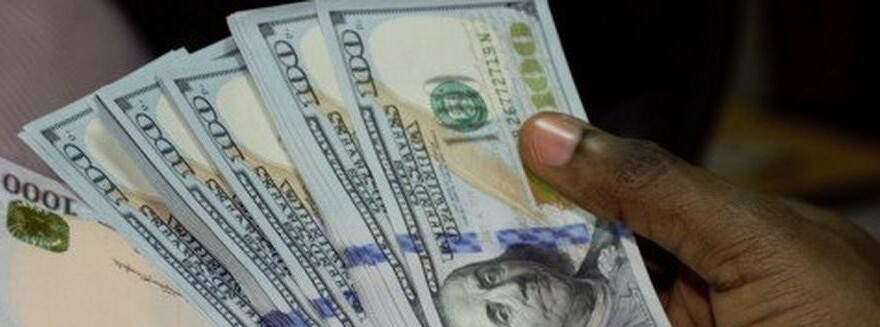The head of the economics department at the University of Juba said South Sudan needs to stimulate and increase local production to strengthen the local currency against the U.S. dollar.
The world’s youngest nation is witnessing a continued deterioration in the exchange price of the South Sudanese Pounds (SSP), a rising inflation rate and a hike in the prices of commodities in the market.
This week, the Central Bank rate has been 1 USD to SSP 863. The black market rate has been even higher in favour of the US dollar.
Two weeks ago, the Central Bank announced the introduction of a cash-based auction policy as a measure aimed at buttressing the South Sudanese Pound.
During an interview with Radio Tamazuj, Professor Morris Madut averred that the Central Bank’s injection of hard currency into the market only works if it reaches the genuinely intended beneficiaries and not speculators.
“There are two ways usually to stabilize the foreign exchange market. The first one is to increase your local productive capacity so that you can produce and export more, then you can get dollars to stabilize your economy,” he said. “In a scenario like now when you are not producing enough to be able to bring in foreign hard currency, the only thing is to be able to inject that hard currency direct into the market to stabilize the economy but it must go to the right people.”
According to Madut, last week’s auction of USD 5 million to commercial banks and forex bureaus has had an impact on stabilizing the SSP.
“I think there is a change because that hard currency was injected and other measures were taken like closing loopholes so that the hard currency goes to the right hands and right actors in the market,” he explained. “The rate of the U.S. dollar against SSP is no longer high and this is not just the result of injecting hard currency into the market but also the result of better regulation of the market to ensure that the actors for which hard currency is meant are the one that access to it.”
“By actors, I mean somebody has to be either an importer or exporter because if you need hard currency you are actually participating in the foreign exchange market but if you are not, then you are what we call a speculator,” he added.
On President Salva Kiir’s call for a conference to discuss and find ways of improving the economy, the economics don said it was a good idea and would put policymakers on the same footing and direction.
“I think the reason why conferences are done, and it is not just in South Sudan but all over the world even for the economies which are doing well, is a constant reminder that this is what we need to do,” Madut said. “When you bring all the stakeholders and converse with them and make them brainstorm on what needs to be done, even if only 10 percent of those recommendations are implemented later on, that is still something. It is better than nothing at all. The main reason for holding this economic conference is to create a common economic direction so that there is better coordination among policymakers.”
He also says the long-term plan should be to empower local businesses to ensure local production is increased and to check what is imported into the country.
“In other countries, somebody cannot just decide to bring in whatever luxurious goods to the country and those loopholes need to be closed. If someone is importing extravagant things into the country, you tax it so that we do not bring what is unnecessary and only bring in what is good,” he said. “You need to close the loopholes because a lot of money flows outside. If you go to other countries, especially our neighbours, there are countries where you are not allowed to take more than USD 100,000 out of the country or even more than USD 10,000 when travelling but for us here, you can just take a million dollars cash. This is wrong.”
Madut also says that South Sudan needs to enact robust investment and commercial legislation to encourage investment.
“Investment laws, especially land laws, have to be clear to motivate long-term investors so that they feel secure. That is why you see most major investments are on land owned by the Catholic Church like Pyramid and Radisson Blu hotels because they feel their investment is secure in those areas,” he explains. “In the short term, a common thing that needs to be addressed right now is the stabilization of prices and renewing confidence in our local currency as a medium of exchange then the demand for dollars will reduce.”




